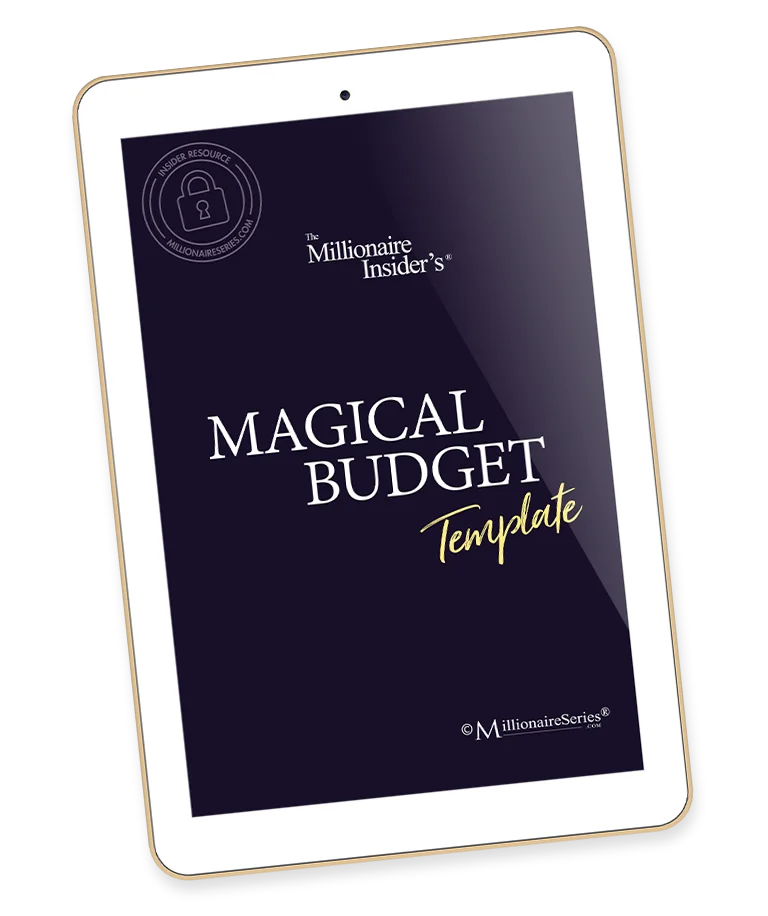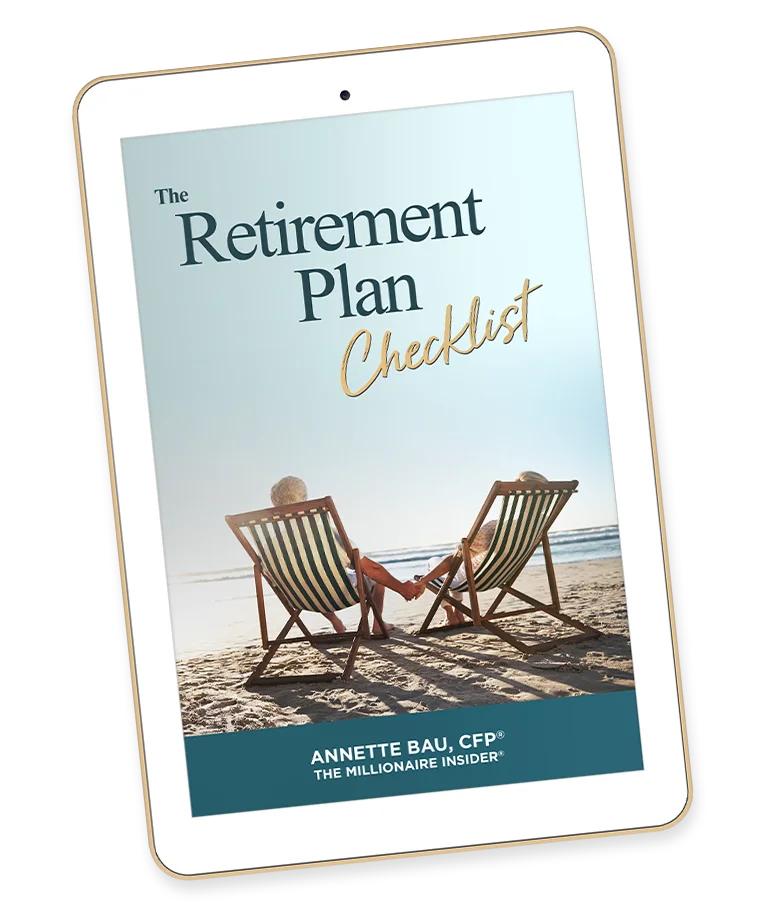Retirement is one of the most significant milestones in your life.
Some people eagerly anticipate it, and others pretend it doesn’t exist. It marks the culmination of a lifelong journey filled with hard work, dedication, and financial planning.
Introduction: How Much Money Do You Need to Retire Comfortably?
The sooner you begin planning for retirement, the better it will be.
One of the most common questions is, “How much money do I need to retire comfortably?”
In this article, we will explore the various factors that contribute to your retirement. You will also learn how to create a plan to secure your retirement.
Disclosure
The Millionaire Insider® copyrights all materials and intellectual property.
This information is for educational purposes only. It is not intended to replace the advice of any advisor or specialist, nor to provide investment, financial, tax, retirement, planning, or healthcare advice.
Always consult with a qualified professional before making any financial decisions or changes.
Understanding Retirement Needs
Determining the amount of money needed for retirement is a complex process. It involves considering multiple factors, such as lifestyle expectations, healthcare costs, inflation, and life expectancy. Personal goals, preferences, and financial circumstances uniquely shape each person’s retirement needs. Let’s delve into some key considerations that can help you estimate your retirement fund requirements.
Lifestyle and Spending Habits
The lifestyle you envision during retirement is pivotal in determining your financial needs.  If you plan to maintain a similar standard of living to your pre-retirement years, you’ll need a more substantial nest egg. Considerations include:
If you plan to maintain a similar standard of living to your pre-retirement years, you’ll need a more substantial nest egg. Considerations include:
- Planned retirement age
- Projected healthcare costs
- Spending habits
- Projected inflation rate
- How long you expect to live
- Social Security benefit
- The amount in your individual retirement accounts (IRAs) and other pensions
- Travel plans
- Hobbies or activities you wish to pursue
A detailed budget can provide insights into your expected expenses and help you plan accordingly.
Planned Retirement Age
Delaying your retirement even one year can significantly impact your nest egg. First, you continue to save and earn compound interest. In addition, it delays your need for money from your retirement. And it reduces your guestimated years in retirement.
For example:
How much money do you need to retire at age 65?
Age 70?
Or age 75?
Healthcare Costs

Healthcare expenses are a significant consideration in retirement planning. As individuals age, healthcare needs often increase. It’s crucial to account for potential medical expenses, including insurance premiums, prescription medications, and long-term care. Researching healthcare options and factoring in potential inflation in medical costs can provide a more accurate estimate.
Spending Habits
One of the most critical retirement planning steps is determining your budget. Precisely, how much do you need each month to live?
Inflation
Inflation erodes the purchasing power of money over time. When planning for retirement, it’s essential to consider how inflation might impact your expenses. Historically, inflation has averaged around 3% per year.
Adjusting your retirement savings goal to account for inflation is also important. This ensures your money retains value and can sustain your lifestyle throughout retirement.
Life Expectancy
Life expectancy is critical in determining how long your retirement savings must last.
No one can predict precisely how long they will live. Factors that impact your life expectancy include:
- Family history
- Lifestyle choices
- Overall health
Planning for a longer retirement ensures that you won’t outlive your savings. In addition, use a retirement calculator that provides you with different scenarios. For example, run financial projections that last 25 or 30 years (or longer if you retire early).
Social Security and Other Income Sources
Assessing potential income sources during retirement is crucial. Social Security benefits, pensions, and other passive income sources contribute to your retirement income. Understanding the expected amounts and factoring them into your retirement plan can reduce the burden on your savings.
Social Security is rarely sufficient for a comfortable retirement. For this reason, create a savings and investing plan to fill the gap.
Calculating Your Retirement Number
Now that we’ve identified factors influencing your retirement needs,  let’s delve into the process of calculating your retirement number. This is the amount of money you’ll need to retire comfortably.
let’s delve into the process of calculating your retirement number. This is the amount of money you’ll need to retire comfortably.
Determine Annual Expenses
Start by creating a comprehensive budget outlining your expected annual retirement expenses. Examples include housing, utilities, transportation, healthcare, food, entertainment, and other relevant expenditures. Be realistic and factor in potential changes in spending patterns.
Consider Inflation
Adjust your annual expenses for inflation to estimate future costs accurately. This step is crucial for ensuring that your retirement savings can cover increasing expenditures over time.
Assess Other Income Sources
Identify and quantify all potential sources of income during retirement. This may include:
- Social Security benefits
- Pensions
- Annuities
- Rental income
- Dividends from investments
Subtract your income streams from your estimated annual expenses. This will give you an idea of how much you need to cover through savings.
Factor in Healthcare Costs
Research current and projected healthcare costs for retirees. Consider purchasing supplemental health insurance or a long-term care policy to mitigate potential out-of-pocket expenses. Add these costs to your annual budget.
Account for Taxes

Understand the tax implications of your retirement income. Some sources of income, such as Social Security benefits, may be taxable. Factoring in taxes ensures you have a clear picture of your after-tax income and can plan accordingly.
Calculate the Nest Egg
The first step is to get a clear understanding of your
- Annual expenses
- Income sources
- Potential healthcare costs
Next, calculate the money you need to generate the required annual income. This lump sum represents your retirement savings goal. If you cannot calculate the amount, hire a financial advisor.
Strategies for Building Your Retirement Fund
Now that you have a target retirement savings goal, it’s time to explore strategies for building your nest egg. Consider the following approaches to strengthen your financial position for retirement:
Start Early
As the saying goes, “The best time to begin planning  for your retirement is yesterday; the next best time is today.” So, start as soon as you can.
for your retirement is yesterday; the next best time is today.” So, start as soon as you can.
Use Compound Interest
Time is a powerful ally when it comes to building wealth. The earlier you start saving for retirement, the more time your investments have to grow. Take advantage of compounding returns by consistently contributing to your retirement accounts throughout your working years.
Maximize Employer-Sponsored Retirement Plans
If your employer offers a retirement savings plan, such as a 401(k) or 403(b), take full advantage of it. Contribute at least enough to your retirement to receive any employer match. As a result, you will receive free money that boosts your retirement savings.
Diversify Your Investments
Spreading your investments across different asset classes is a key principle in investment strategy.
Examples include:
- Stocks
- Bonds
- Real estate
Investing in different types of assets allows you to reduce risk and enhance the potential for long-term growth. A qualified financial advisor can help you create a diversified portfolio aligned with your risk tolerance and financial goals.
Regularly Review and Adjust Your Plan

Life is dynamic, and financial circumstances can change. Regularly review your retirement plan to ensure it remains aligned with your goals. You can adjust your savings rate, investment allocations, and retirement timeline as needed.
Once you retire, it is important to continue and monitor your plan.
Consider Delaying Retirement
Extending your working years can have a significant impact on your retirement savings. Not only does it provide additional time to save, but it also allows your existing savings to grow. Delaying Social Security benefits can also result in higher monthly payouts when you retire.
Seek Professional Advice
Consulting with a financial advisor can provide personalized insights and guidance tailored to your situation. A financial professional can help you:
- Navigate complex financial decisions
- Optimize your investment strategy
- Ensure that your retirement plan is secure
Common Retirement Concerns
As individuals approach retirement, various concerns may arise. Addressing these concerns proactively can help alleviate anxiety and ensure a smoother transition into retirement.
Outliving Your Savings
The fear of outliving one’s savings is a common concern among retirees. To mitigate this risk, some professionals recommend a withdrawal rate of 4%. 
This rule suggests withdrawing 4% of your retirement savings annually. The goal is to balance sustainable income and preserving your nest egg. The rate will depend on the amount in your company, including your 401k plan(s) and retirement savings accounts (IRAs). The age at which you retire will also impact the calculation.
For example, if you retire at age 65, you will likely need more than if you retire at age 75.
Market Risk
Market fluctuations can impact retirement savings—the more assets invested in stocks, the more potential for fluctuations. While having a diversified investment portfolio is essential, consider adjusting your asset allocation as you approach retirement. A more conservative allocation, with a focus on capital preservation, can help safeguard your savings.
Unexpected Expenses
Life is often not predictable, and unexpected expenses can arise.
An emergency fund with three to 12 months of expenses can provide a financial safety net. It can also help to prevent the need to dip into your retirement accounts during challenging times.
Healthcare Costs
As healthcare expenses tend to increase with age, having a well-thought-out healthcare plan is crucial. Consider purchasing long-term care insurance to protect against high costs associated with extended medical care.
Conclusion – How Much Money Do You Need to Retire Comfortably?

Determining how much money you need to retire is a complex and personalized process. It involves carefully assessing your lifestyle, spending habits, healthcare needs, and other factors unique to your situation.
Creating a solid retirement plan with sound financial strategies can help ensure a secure financial future. It will also help to ensure your retirement is the “golden years” versus the miserable years.
It’s never too early to start planning for retirement. The sooner you start planning, the better.
By taking proactive steps today, you can significantly impact your financial well-being in the future.


